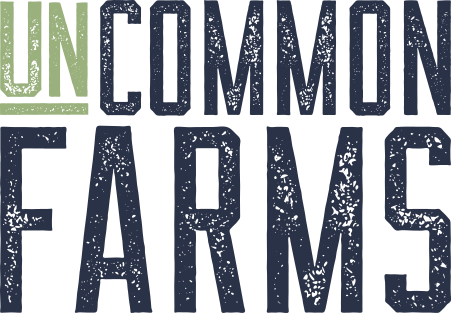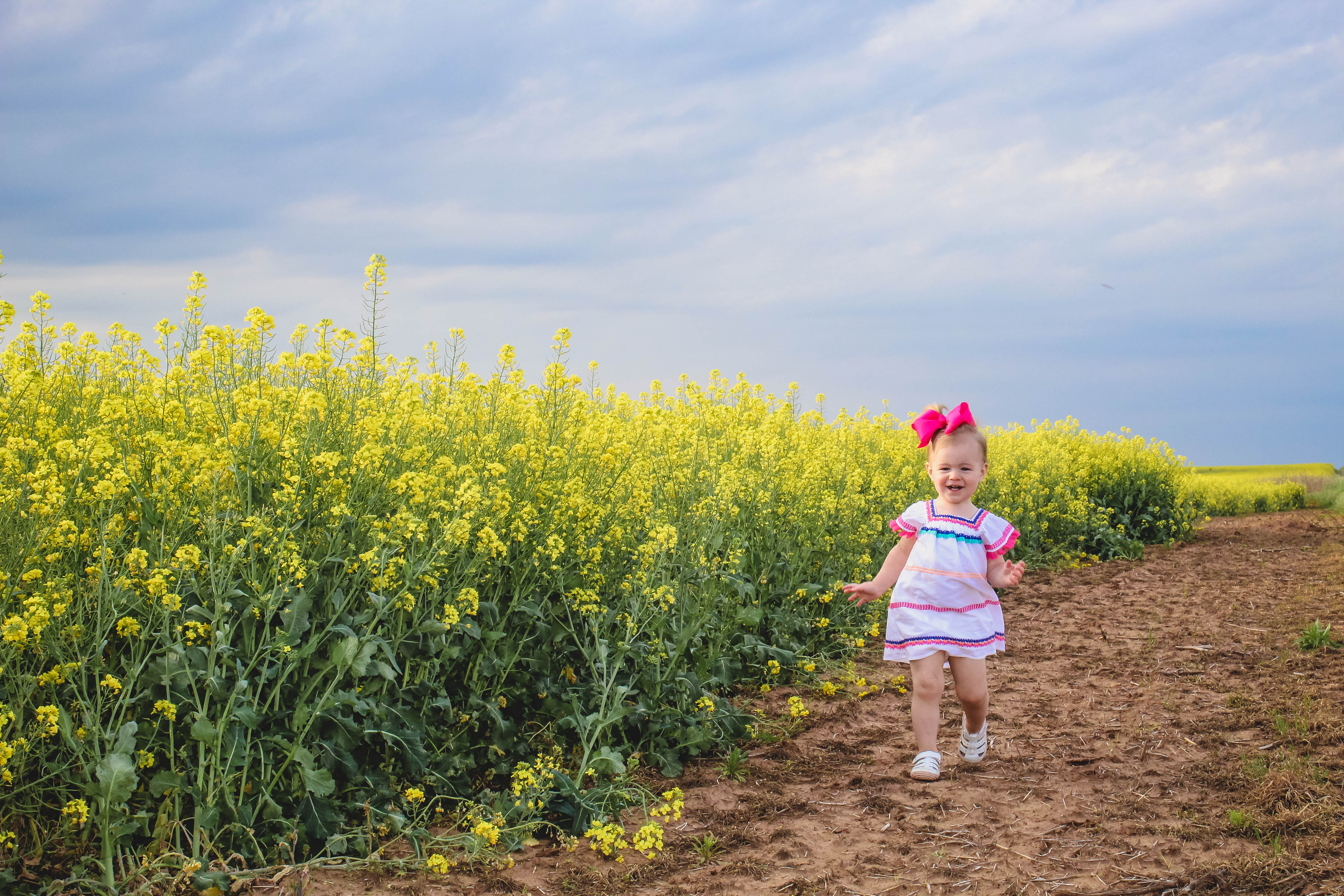Of all the things raised on a farm, the most rewarding and the most challenging are always our children. At tax time, our kids bring us some extra joy. There are a variety of credits available to parents of children, and farm taxes can sometimes make the credits and deductions more or less valuable, depending on the situation.
Farm Taxes - Little Ones
The Child Tax Credit is a credit of up to $2,000 per child under 17, subject to certain income and tax liability limitations. While deductions such as the exemptions mentioned above reduce the amount of income that is taxed, a credit is a direct reduction in the amount of tax owed. There is a $500 credit for children 17 and older that are still considered your dependent.
The Dependent Care Credit provides as much as a $6000 credit for two children when both parents have earned income and children are cared for by a paid sitter. The paid sitter, however, cannot be another dependent or adult child of the taxpayer.
The Earned Income Credit is a credit available to individuals and families with low incomes. It’s designed to offer support to families who are not eligible for services such as SNAP but still need some extra help. The maximum Earned Income Credit for a family with three children is more than $7800 in 2024, which can make a tremendous difference to a low-income family. Owning a farm or other business does not disallow the credit, but investment income can.
It seems to be more and more common for kids to be raised by grandparents, other relatives, or even friends. Who is allowed to claim children for tax purposes varies by deduction or credit. If you or someone you know is raising a child not your own, discuss the situation with your tax specialist. You may be surprised at what you are—and are not—allowed. There are fantastic tax credits for adoption, especially for children adopted through state agencies. Also, the rules for divorced and separated parents claiming children are often misunderstood. Be sure you have the most current information for claiming your dependents.
Multigenerational households and unmarried, cohabiting parents with children in common have choices about who will claim the children. It’s important, however, that all parties agree on the choice, all parties are the children’s legal parents or the parents of the legal parents, and all relationships are legal.
Farm Taxes - The Middle Years
Your kids or grandkids can often be trusted to do basic farm jobs. The age that they are able to accomplish real work and the jobs they can competently perform will vary quite a bit, but they can still do work for the farm, and they can be paid for the work they do. This discussion is about children and grandchildren only, in a Schedule F, Partnership farm. All other children probably fall under a different set of rules and laws, both for tax and labor.
Pay your kids fairly, on a scale that you would pay anyone else for the work they are doing. You can pay an hourly wage or a piecework wage, and depending on the age of the children involved, you might consider negotiating with them. It’s invaluable practice for them. Be sure they are doing real work, and that the work is for the farm, not the household. (The child can sweep out the barn, but not the kitchen.)
Obviously, this will lower farm income, which is a good thing for you. What about your child? They will probably have to file a tax return. If they have investment income subject to Kiddie Tax, those rules will still apply to that income, but their earned income does not fall under those rules. The standard deduction is permitted to lower their taxable income, and they may have other adjustments. Depending on their income, they may have tax liability. (Regardless of income, kids in Illinois will have tax liability because Illinois has no standard deduction—only the exemption that you are claiming.)
A great strategy to help your kids learn how to save is to put some (or even all) of their earned income into an IRA. Especially for kids who also have an allowance or access to other spending money, investment in IRA accounts can work really well. There is no minimum age requirement for investing in IRA—only that the owner has earned income and the amount deposited is not greater than earned income.
Putting money into a traditional IRA will lower taxable income for both federal and state tax, but your child will not be able to use it for college unless you are no longer able to claim them while they are in college (which is highly unlikely). However, under current rules, they would be eligible to draw that money to buy or build a first home.
Investing in a Roth IRA can be a good option for college savings, but the Roth must be opened five years before any distributions from its earnings are made. The Roth will not lower the taxable income in the year earned, but it can be a great vehicle for more flexible savings with a good return. For many parents, the child’s temperament and likely needs will be the most important factors in deciding which option is best. It is possible to contribute to both—subject to the rules. Be sure to discuss any investment strategy in depth with a trusted financial advisor.
Farm Taxes - College and On Their Own
When your kids go to college and transition to work, everything changes in your life. Your tax situation changes, too. You lose the Child Tax Credit, and although kids who go away to college may still come back to work on the farm during breaks, you rely less on their help. Even if they stay, they will likely either be working toward taking over farm labor or moving into other kinds of work. These are busy, stressful years.
For college-bound kids, a variety of tax credits are available for education. Discuss your kids’ plans with your tax specialist, and work out a tax plan that takes the best advantage of all of the options. The American Opportunity Tax Credit (AOTC) is the best tax credit ever, but there are times when you may want to delay claiming this credit in favor of the Lifetime Learning Credit or the deduction for Tuition and Fees. Each of the credits and deductions have different rules and rely on different factors.
If you received savings bonds when your kids were young, the best time to cash them in is when the kids go to college. You can take the interest income tax free when it is used to pay tuition. Tip for buying savings bonds for children: always put the savings bonds in the parents’ names. Children who are claimed on their parents’ returns can’t take the interest tax-free, even if they use it for college.
If you take out Parent Plus or similar loans to pay for education, you may take a deduction for student loan interest when the loans are being paid off. Interest on loans taken out in the student’s name, however, can only be deducted from the student’s return. Parents assisting with loan repayment should gift the money to their children in so the children can claim the deduction. Keep in mind that if all gifts to one child from one parent total over $18,000 in a year, a gift return may be required.
In most cases, parents continue to claim children throughout college. This can be frustrating for students, especially if they are working, but the parent generally benefits more from the deductions and credits. When a child is out of school and earning money of their own, they generally begin to claim themselves. It is possible for a parent to claim a married child if the child meets all other requirements as a dependent.
Once your child is working, whether on or off farm, it’s likely that you’ll no longer be able to claim their exemption. In all cases and throughout all of the changes in your family’s life, be sure you have a team of advisors you can trust—a banker, a financial planner, and a tax specialist—to protect your family’s valuable assets.
Get tax help from professionals that know tax and agriculture!
Tax law written specifically for farmers can be quite complex. But many tax preparers don't understand the ins and outs of farm taxes like Publication 225, the Farmer’s Tax Guide, and Form 1040, Schedule F, Profit or Loss From Farming. The tax professionals at UnCommon Farms understand the sophistication of farm businesses and work alongside you to help you navigate through all the complexities of tax planning and preparation. Learn more about our tax services.



